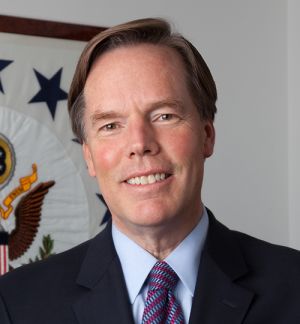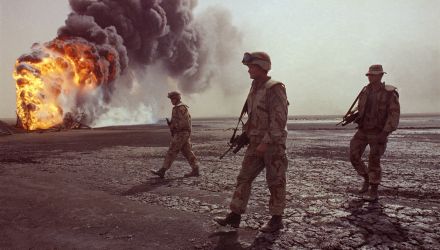THERE WILL be no rest for the weary as President Obama confronts a daunting foreign policy agenda in 2014. Obama had the success of the Iran talks and a deal to remove Syria’s chemical weapons this past autumn. But as the new year begins, he also faces criticism by close friends Israel and Saudi Arabia of what they see as uncertain and indecisive leadership.
Here are the most significant global crises in Obama’s foreign-policy inbox that will determine whether the year ahead will bring war or peace to the world’s most troubled regions.
The growing China-Japan rivalry. Relations between Beijing and Tokyo are as bitter as any time in memory. China’s assertive President Xi Jinping and Japan’s nationalist Prime Minister Shintaro Abe are on a collision course over the Senkaku Islands in the East China Sea. The United States is rightly backing Japan. But look for Obama to counsel the two countries to exercise restraint to avoid a miscalculation that could spark a naval or air conflict. He also needs to support the Philippines and Vietnam over equally tendentious Chinese territorial claims in the South China Sea.
Four fires burning in the Middle East. Obama wants to pivot to Asia but keeps getting caught in the quicksand of the Middle East. Four crises will test him once more in 2014:
■ In Syria, can Obama and Secretary of State John Kerry work with cynical and not-always trustworthy Syria, Russia, and Iran to forge a ceasefire? Without one, Syria’s 9 million refugees will continue to suffer in the brutal conflict.
■ Key US ally Egypt appears headed for a bloody, divisive 2014. The military dictatorship has extinguished the 2011 revolution and recently branded the powerful Muslim Brotherhood a terrorist group. That will cause continued tension, violence, and perhaps even civil war in the Arab world’s keystone state.
■ As the Israeli-Palestinian conflict enters its 66th year, Kerry refuses to give up his improbable but courageous bid for peace. He arrives in Israel Thursday with a plan to restart talks preceded by release of Palestinian prisoners. The road to peace is long, but critics may not want to count out Kerry just yet.
■ Stopping Iran’s drive for nuclear weapons remains the key US priority for the next year. Can Obama and Kerry build on November’s interim deal to move Tehran toward a final agreement? Iran is a supreme test of Obama’s belief that diplomacy can avert another Middle East war and perhaps even lead to eventual peace with our longtime nemesis.
The Afghan war. Entering its 13th year in Afghanistan, the United States will withdraw the bulk of our troops by summer. But will Afghanistan’s mercurial President Hamid Karzai permit a small US force to stay to battle terrorists and prevent a Taliban resurgence? If not, years of US sacrifices since 9/11 are at risk.
Coping with Vladimir. Russia’s megalomaniacal Putin is riding high due to his pivotal role in the Syria chemical weapons deal, Ukraine, and the Sochi Olympics. Can Obama find a way to reset yet again their famously difficult relationship? It would be a smart play, as Putin can help to deliver an Iran deal and an even more elusive ceasefire in Syria.
Fixing a deteriorating US-India relationship. Once a key US strategic partner, India is now locked in an acrimonious dispute with Washington over what it charged was demeaning US law enforcement treatment of an Indian diplomat. Delhi’s ill-advised retaliation against US diplomats in India has thrown the entire relationship into a tailspin. And April elections may well bring the opposition BJP party to power. Its controversial leader, Narendra Modi, has been denied a visa by the United States for the past decade on human rights grounds. Sorting out this suddenly complicated relationship is a must for the Obama team.
Civil wars in Africa. Raging conflicts in South Sudan, the Central African Republic, Somalia, and Congo will require strong and active US leadership with the UN and key African countries in the months ahead to stop the bloodshed.
With these and other crises, Obama will be tested globally as never before in 2014. The world expects a fully engaged and self-confident superpower to take charge. Providing that steady, leading voice will be Obama’s singular challenge in the year ahead.
Burns, Nicholas. “Obama's 2014 Foreign Policy Challenges.” The Boston Globe, January 2, 2014





